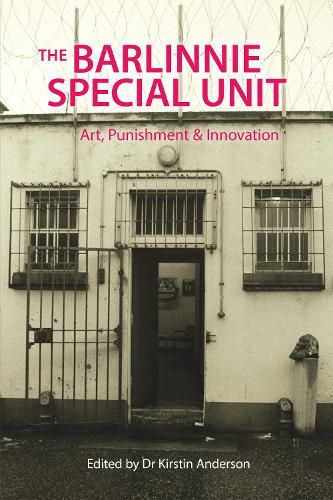Readings Newsletter
Become a Readings Member to make your shopping experience even easier.
Sign in or sign up for free!
You’re not far away from qualifying for FREE standard shipping within Australia
You’ve qualified for FREE standard shipping within Australia
The cart is loading…






This title is printed to order. This book may have been self-published. If so, we cannot guarantee the quality of the content. In the main most books will have gone through the editing process however some may not. We therefore suggest that you be aware of this before ordering this book. If in doubt check either the author or publisher’s details as we are unable to accept any returns unless they are faulty. Please contact us if you have any questions.
Fifty years ago, a small unit in HM Prison Barlinnie, Glasgow, became a radical experiment whose approach polarised opinion. It encouraged shared decision-making between prisoners and staff, allowed greater access to families and enabled prisoners to explore creative activities. Through the support of visiting artists, and the voices of the prisoners themselves, notably the sculptor Jimmy Boyle (author of A Sense of Freedom), its impact challenged prevailing, disciplinarian prison culture.
Arts of various kinds, plus respectful and challenging dialogue, released dormant abilities and strengths in hitherto recalcitrant, formerly violent prisoners. Always controversial, the legacy of the Barlinnie Special Unit challenges overly punitive ideas around crime to this day.
The first edited collection on the Barlinnie Special Unit's almost 22-year history with contributions by those who were there at the time, or helped preserve its legacy. They include artist filmmaker Bill Beech, Scotland's first art therapist Joyce Laing, leading Scottish impresario Richard Demarco, Sara Trevelyan, ex-wife of Jimmy Boyle (who also contributes), Rupert Wolfe Murray, son of Boyle's publisher, Professor Mike Nellis of Strathclyde University, Claire Coia, a curator at Glasgow's Open Museum, Andrew Coyle, founding Director of the International Centre for Prison Studies and journalist, and former Scottish MP Brian Wilson.
$9.00 standard shipping within Australia
FREE standard shipping within Australia for orders over $100.00
Express & International shipping calculated at checkout
This title is printed to order. This book may have been self-published. If so, we cannot guarantee the quality of the content. In the main most books will have gone through the editing process however some may not. We therefore suggest that you be aware of this before ordering this book. If in doubt check either the author or publisher’s details as we are unable to accept any returns unless they are faulty. Please contact us if you have any questions.
Fifty years ago, a small unit in HM Prison Barlinnie, Glasgow, became a radical experiment whose approach polarised opinion. It encouraged shared decision-making between prisoners and staff, allowed greater access to families and enabled prisoners to explore creative activities. Through the support of visiting artists, and the voices of the prisoners themselves, notably the sculptor Jimmy Boyle (author of A Sense of Freedom), its impact challenged prevailing, disciplinarian prison culture.
Arts of various kinds, plus respectful and challenging dialogue, released dormant abilities and strengths in hitherto recalcitrant, formerly violent prisoners. Always controversial, the legacy of the Barlinnie Special Unit challenges overly punitive ideas around crime to this day.
The first edited collection on the Barlinnie Special Unit's almost 22-year history with contributions by those who were there at the time, or helped preserve its legacy. They include artist filmmaker Bill Beech, Scotland's first art therapist Joyce Laing, leading Scottish impresario Richard Demarco, Sara Trevelyan, ex-wife of Jimmy Boyle (who also contributes), Rupert Wolfe Murray, son of Boyle's publisher, Professor Mike Nellis of Strathclyde University, Claire Coia, a curator at Glasgow's Open Museum, Andrew Coyle, founding Director of the International Centre for Prison Studies and journalist, and former Scottish MP Brian Wilson.